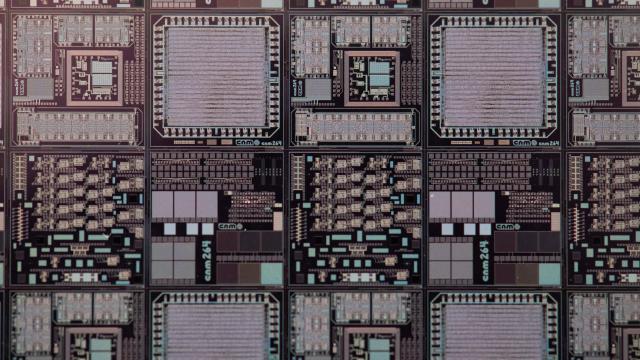Some of Japan’s leading tech companies are joining forces as part of a $US500 ($694) million push by their host government to cement Japan’s status as leader in the advanced semiconductor space.
Sony, SoftBank, and Toyota are among the firms working with chipmakers on a new initiative called “Rapidus” which aims to design and develop the new chips by the end of the decade, according to The Wall Street Journal. The diversity of the firms involved reflects the wide variety of chips needed to power the advanced computers, AI systems, and self-driving cars that may be expected to mature in the near future. The effort marks Japan’s clearest move yet to maintain relevance in the global semiconductor race, which has mainly been dominated by the U.S., China, and Taiwan in recent years.
Citing continued investment in semiconductors from other nations, Japan’s Economy Minister, Yasutoshi Nishimura framed Japan’s own investment in the tech as a national security concern.
“As the struggle for control of technology between the U.S. and China intensifies, the importance of semiconductors is increasing from the perspective of economic security,” Nishimura said according to The Journal.
For companies like Toyota and Sony, the initiative provides them an opportunity to play a more active role in their own supply chains. That’s attractive because it means, down the line at least, those companies could potentially insulate themselves from global supply chain shocks that could threaten their production output. That possibility is all too real for Toyota which reduced its production plan by half a million vehicles this year due to chip shortages. Those supply shortages are also part of the reason why it’s still a pain in the arse to purchase a new Sony Playstation 5 two years after its release.
Japan’s roughly half a billion dollar investment may stand out domestically, but it still pales in comparison to other recent investment in chips in the U.S. and other regions. Earlier this year, U.S. congress members put aside their partisan squabbling to pass the CHIPS Act, which commits $US52 ($72) billion to incentivise chip makers to increase semiconductor production in the United States. The legislation also includes provisions to create tax credits intended to ramp up investment and a new fund meant to encourage innovation.
Private companies had already made their own spending commitments prior to the CHIPS Act. At the height of the pandemic, and a connected semiconductor shortage, Taiwanese chip making giant TSMC announced it would spend $US12 ($17) billion to build an advanced semiconductor plant in Arizona. This summer, fellow Taiwanese chipmaker GlobalWafers announced it would spend $US5 ($7) billion to build a new Texas-based 300-millimetre silicon wafer plant. Construction on that plant reportedly began in September. All of that would look like peanuts, however, compared to the $US200 ($278) billion Samsung says it hopes to spend over the next two decades on chip making plants in Texas.
At the same time, multiple European countries and China have all announced initiatives to ramp up their own domestic chip manufacturing. Each of those countries and specific private industry chip manufacturers are partly reacting to a glaring supply logjam made painfully obvious during the pandemic. Tech firms throughout the industry are still picking up the pieces from the shortage which exposed the industry’s reliance on a handful of manufacturers mostly located in Taiwan and China.
